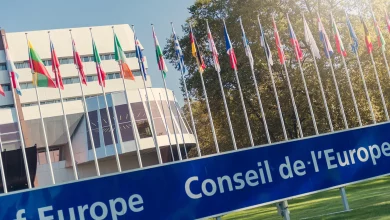The New Draft Law on Access to Information Approved by the Government Still Causes Dissatisfaction: “We Demand Large-Scale Representative Consultations”

The new draft law on access to information was approved by the Government on Wednesday, April 12, and will be subsequently sent to the Parliament. In its current version, the document still causes discontent among journalists and experts, and several NGOs have launched a public appeal for large-scale consultations on the parliamentary platform.
The new draft law on access to information started being developed in early 2022. Among other things, the document defines information of public interest as all the information held by information providers listed in it. It stipulates that any individual or legal person shall have the right to have access to information of public interest, “without absolutely any discrimination”; methods of accessing information, provisions for limiting access, procedures for processing requests for access to information, rules on personal data, etc. are included. According to the initiative, signing requests will no longer be obligatory, and the deadline for responding to requests will amount to 15 calendar days. Unlike the current law, the new draft includes a chapter on proactive transparency, which implies that the authorities could be obliged to publish a series of information related to their activity ex officio, on their official web pages.
In February, Media Azi wrote about the fact that, according to some experts and lawyers, the text contained a number of loopholes. These concerns persisted after the Cabinet of Ministers approved the draft law.
An appeal launched on April 13 by several non-governmental organizations refers to a restrictive definition of public information, introducing exceptions which make the criterion of proportionality inapplicable to limiting access to information, the lack of clear criteria of quality and format for proactive publication of information, as well as an effective scheme for monitoring and implementing the law, and extremely long terms for accessing information, especially for journalists. The signatories demand from the legislative authority to organize wide-scale representative consultations on the project.
“In its current version, the draft Law on Access to Information will not solve the problems reported over the years, especially by the media community, which is most frequently faced with the information providers’ illegal practices. The suggestions from civil society were intended to improve these practices, as well as transparency standards by facilitating media access to information of public interest, yet they were not taken into account by the authors of the draft law,” Cristina Durnea, lawyer of the Independent Journalism Center, explains. “The main reason results from the provisions of the Tromsø Convention which prohibits establishing preferential legal regimes. At the same time, it should be emphasized that this international legal act is not the most progressive one in this sphere, as well as the fact that the minimum standards stipulated by the Convention have already been reflected in the current Law on Access to Information,” she sums up.
Journalist Mariana Rață from the TV8 channel believes that the list of information which is supposed to be limited is restrictive. “The worst thing is the degree to which access is limited in the context where the officials hardly provide any information anyway, having a much more permissive law. Issues with restricted access are mentioned in very broad lines and leave a lot of room for abuse. You cannot say that environmental issues are limited as such. They should have indicated particular types of information in the draft instead of leaving them to the discretion of the officials who will consider applications for access to information,” she told Media Azi.
Liuba Șevciuc from the CU SENS media project also mentions the difficulties related to the way the officials interpret the law while answering requests from the media. “In many cases, state secrecy or personal data are invoked or the information requested is not provided. We have to send repeated requests; we have to keep waiting for months. In serious cases, we sue the state institutions. In the Republic of Moldova, implementation of the laws, be they old or new, is the problem. We expect the law to be implemented correctly and the authorities to be as transparent as possible, to provide access to as much information as possible. Officials should also probably be trained how to do it,” the journalist affirms.
“Today, the Government sent a better wording of the document to the Parliament, including all the eagerness for further adjustments on the parliamentary platform resulting from the European practices and our commitments based on the Tromsø Convention,” Daniel Vodă, the spokesperson of the prime minister, wrote in a reaction on Facebook.




